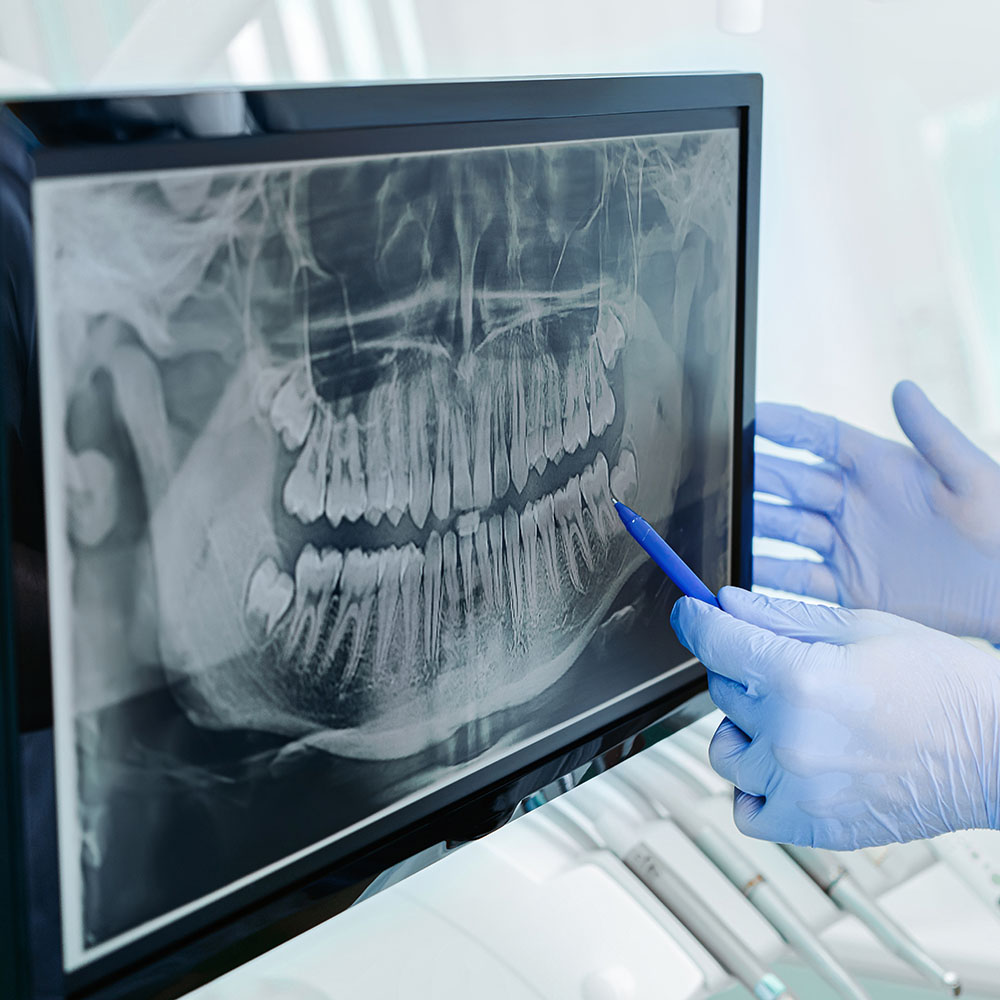Revealing Oral Health Mysteries, One Answer at a Time
Have Questions About Mouth Surgery?
If you have questions about mouth surgery or any other oral health concerns, our FAQ section is a great resource for quick answers. At Colorado West Oral & Maxillofacial Surgery in Grand Junction, CO, we believe in empowering our patients with thorough, easy-to-understand information. Our skilled team is committed to excellence in all aspects of patient care and education, ensuring you feel confident and well-informed before undergoing any procedure. Whether you need wisdom tooth removal or dental implants, we aim to address all your queries and concerns effectively.


FAQs
Dental Implants & Aftercare
What should I do immediately after dental implant surgery to control bleeding?
After your surgery, bite down gently but firmly on the gauze placed over the surgical area. If bleeding persists after an hour, replace the gauze and apply pressure for another 30-60 minutes. For persistent or heavy bleeding, a moistened tea bag can be used for 20-30 minutes. Avoid vigorous rinsing and touching the area.
Is swelling normal after the procedure? How can I manage it?
What can I expect in terms of pain after dental implant surgery?
How should I adjust my diet following the surgery?
What are the guidelines for oral hygiene post-surgery?
How long does healing take, and what does it involve?
When can I resume my normal activities after getting a dental implant?
How do I know if there are complications with my dental implant?
Are dental implants a good option for everyone?
Dental implants provide a stable, aesthetic, and functional tooth replacement but may not be suitable for everyone. Factors such as jawbone density, overall health, and specific needs are considered. A consultation with your dental professional is essential to determine if implants are right for you.
How long do dental implants last?
Wisdom Teeth Care
What is the process for evaluating wisdom teeth?
Our doctors use advanced imaging techniques to assess the condition of your wisdom teeth, including whether they are impacted, misaligned, or causing overcrowding. This thorough evaluation helps tailor a precise intervention plan for your individual needs.
Why might wisdom teeth need to be removed?
What can I expect during the recovery process after wisdom teeth removal?
How do you tailor treatment for individual needs?
What kind of support can I expect post-extraction?
Wisdom Teeth Care
What is the process for evaluating wisdom teeth?
Why might wisdom teeth need to be removed?
What can I expect during the recovery process after wisdom teeth removal?
How do you tailor treatment for individual needs?
What kind of support can I expect post-extraction?
Other Procedures & General Questions
What should I do immediately after oral surgery?
Is bleeding normal after surgery?
Yes, intermittent bleeding or oozing is normal. Control it by placing fresh gauze over the area and biting down firmly for 30-60 minutes.
What if I experience severe bleeding after surgery?
How can I manage swelling after surgery?
What pain management options are available post-surgery?
What should I do if I feel nauseous after taking pain medicine?
What can I eat after oral surgery?
What if I feel sharp edges in the surgical area?
How should I clean my mouth post-surgery?
What is bone grafting, and why might I need it?
Have more questions or need personalized advice? Don’t hesitate to reach out! Contact our office today for expert guidance and support tailored to your needs. We’re here to help you every step of the way.
